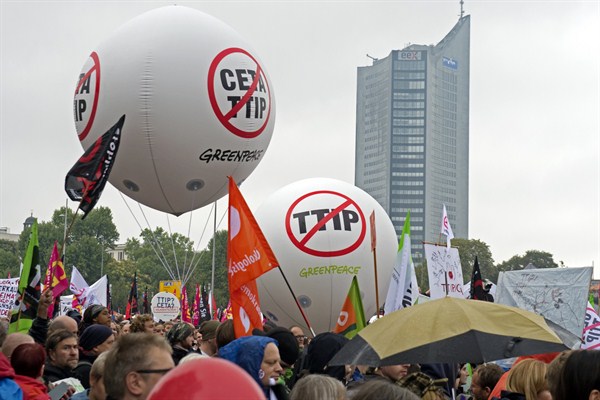When Donald Trump and Hillary Clinton took the stage on Monday night for their first presidential debate, there was one topic on which their positions were not diametrically opposed: trade. That’s not to say they agreed. But in a debate rife with sharp disagreements on just about every issue, the matter of U.S. trade agreements with other countries was one in which they both argued there is room for change.
Skepticism about the benefits of free trade is not unique to the United States. Throughout the developed world, the rise of populist politicians has changed the tone of the discussion about a matter that many economists believed they had rather conclusively settled after looking at the economic calamity of the 1930s and the role anti-trade policies played in that disaster.
Today’s misgivings are being echoed back and forth between political leaders and their publics, each adding political weight to the issue and gradually raising its prominence among national priorities. If the trend continues, and especially if populist politicians assume power, it is likely to have a tangible impact on multilateral agreements and eventually start eroding the volume of global trade. That, as history has shown, would bring harmful effects to the global economy.

